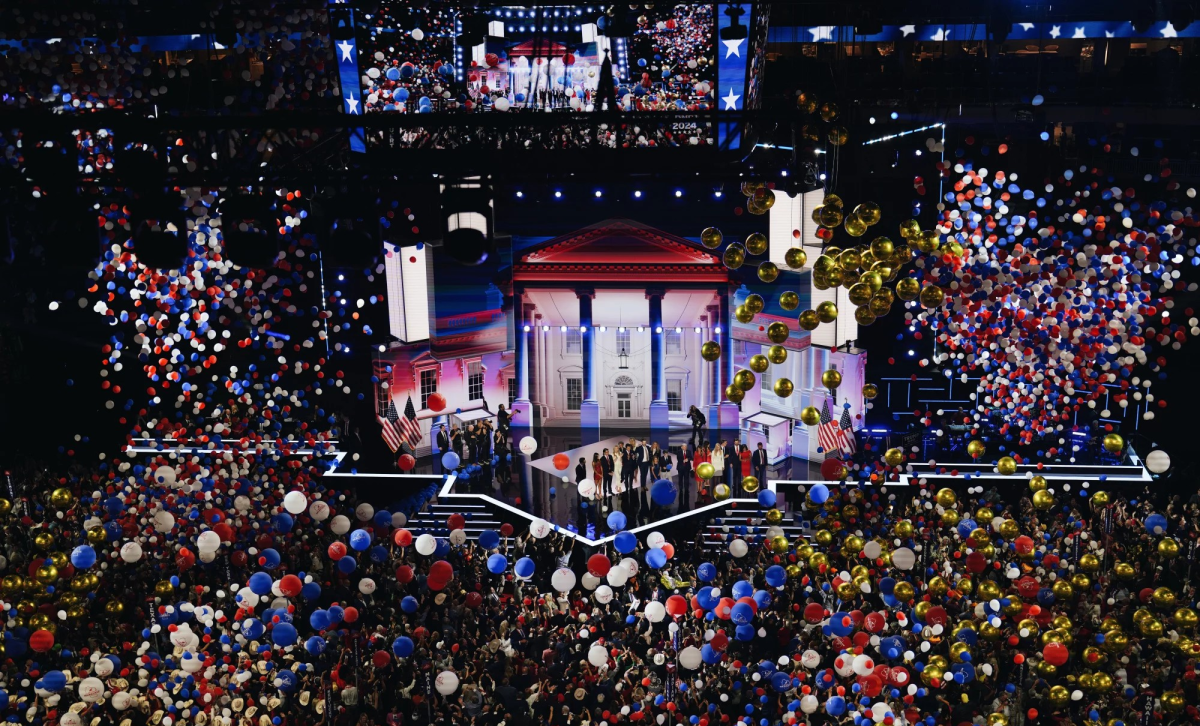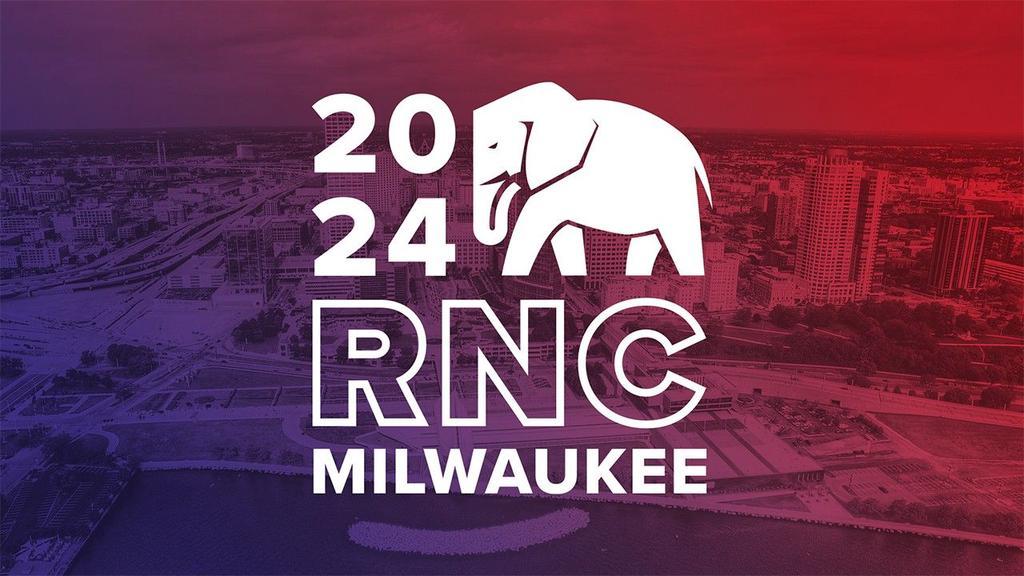Five Facts to Know from the Democratic National Convention
After a week where the superstars of the Democratic Party made the case for Kamala Harris and Tim Walz, Democrats are headed into the US elections with clear momentum. Just a month ago, political pundits said the party was in disarray, lacking energy and focus. But today, Democrats have emerged from a month of turbulence stronger than ever.
Here are five facts to know from the Democratic National Convention in Chicago:
1. DEMOCRATS HAVE A CLEAR MESSAGE: FREEDOM
When Biden was running for President, he made the case that democracy was at stake. But now that Vice President Harris is at the top of the ticket, the argument has evolved to one of Freedom. You’d be hard pressed to have missed the Freedom message the Democrats were selling. Harris and Walz often walk out to Beyoncé’s “Freedom” and over the course of DNC week Freedom was plastered all over billboards and infused in the speeches during primetime. This week, Democrats made the argument that Republicans have been dictating how people live their lives. Democrats point to Republican’s bans on emergency abortion care, book banning and censorship, and even the loyalty tests that have been suggested in the Heritage Foundation’s Project 2025 playbook. While Trump has disavowed the document, over 140 people who have worked for him had a hand in creating this document, including six of his former cabinet secretaries, so it offers insight into policy options for a second Trump term.
While neither party owns the definition of Freedom, traditionally in American politics Conservatives (specifically small government Republicans) have held the monopoly on Freedom messaging. But Democrats are betting that their party and independents have noticed that Republicans have strayed from those traditional ideals. This messaging so far has been resonating. Freedom is engrained in America’s psyche and, while you may not be able to put your finger on what Freedom is exactly, Freedom is connecting with independent audiences, who might be looking for a change. To quote Kamala Harris, “We’re not going back.”
2. HARRIS IS POSITIONING HERSELF AS A PROSECUTOR FOR THE PEOPLE
Last week, Kamala Harris was framed as more than just the vice president of the United States, but as a prosecutor for the people. Harris hasn’t quite known what to do with her background as former district attorney and attorney general. In 2019, the party saw her criminal justice background in a negative light (progressives made this clear with “Kamala is a cop” narratives) but in 2024, when her main opponent is a convicted felon, Democrats are hoping that her background will help demonstrate a clear difference.
Democrats have pointed to Harris taking on “perpetrators of all kinds—predators who abused women, fraudsters who ripped off consumers, cheaters who broke the rules for their own gain.” Harris continued: “So, hear me when I say: I know Donald Trump’s type.” By framing Harris as a prosecutor of all kinds, Democrats are saying that Harris won’t just tackle Donald Trump but the entire system that is tilted in favor of big corporations, the wealthy, and others who seem just beyond reach of the legal system and the rules that average working-class Americans have to abide by.
But the messaging is risky. Democrats have constantly called for criminal justice reform, arguing that just because you have a record shouldn’t end your prospects for the future, especially for nonviolent offenders. There is a potential that this message—that Donald Trump is a felon and therefore unfit for office—could backfire. Finally, Harris has had a complicated relationship with the prosecutor mantra. In 2019, it hurt her with the more progressive wing of her party. Harris will have to thread the needle as a commonsense reform prosecutor who is tough on Trump and still a beacon of reform and change for her party.
3. WALZ (THE COACH) IS POSITIONED WELL FOR INDEPENDENTS TO RELATE TO HIM ON A PERSONAL LEVEL
When Senator Amy Klobuchar (MN) and a former student introduced Governor Tim Walz to the world, both spoke to his Midwest background and applauded his career of service to the people in his community. Using the term, “Coach Walz” they evoked images of the governor working with students, signing legislation for kids to eat for free, and a man simply committed to doing the right thing.
Harris’ choice of Governor Tim Walz might have seemed like an obvious one. He’s from the Midwest, a key demographic Democrats will need if they are going to keep the White House, and he has a demonstrated legislative and executive career. Walz’s political jacket includes abortion access, fighting crime, expanding affordable housing, lowering prescription drug costs, and establishing universal free breakfast and lunch for public school students, which he pledged to continue working towards as vice president. While the vice president does not usually help a presidential ticket—the mantra is “do no harm” —vice presidents generally reflect the decision-making ability of the top of the ticket. The Walz choice appears to be both a good decision for Vice President Harris and has done no harm.
But there seems to be more to Walz than just his policy and his executive and legislative accomplishments. Walz has been touted as a “happy warrior,” someone who is empathetic, can lead, and will defend the people from the “policies of the right.” Walz coined the term “weird” to describe Republicans and has been a hit with younger voters as a “dad that tries his best.” At the state fair, when his vegetarian daughter passed on his corndog offer, he replied, “Turkey then?” And as a football coach, he sponsored the first Gay-Straight Alliance at his high school. Walz’s good-natured empathy offers a strong contrast to the Trump-Vance ticket.
4. KAMALA HARRIS IS STARTING TO SHOW DAYLIGHT BETWEEN HERSELF AND BIDEN—BUT IT'S NOT A COMPLETE DEPARTURE
A chief complaint among critics is that Vice President Harris has not gone deep into her policy proposals in 2024 (as of late August 2024, Harris has no policy proposals on her website, while Donald Trump’s website links to the RNC Platform). While we do have a roadmap from 2019, it’s logical to assume that Harris has evolved over the past few years as she’s supported Biden, who was intensely moderate by today’s standards. While Harris didn’t go into too many details during her nomination speech in Chicago, she did lay out a roadmap for how she would help America chart “a new way forward.”
Harris and the Democrats have a tricky job to do, however. It’s hard to tell Americans how you’re going to improve the economy when your party is the one in the White House. Harris is running as an “almost incumbent” with full access to the executive office, but still trying to slide in an element of change in an election that’s all about the economy. Finally, many of the policy proposals require congressional cooperation, which means in today’s political gridlock the Harris Policy Agenda faces a tough uphill battle to become reality.
The Economy: Harris has promised to tackle the issues that impact Americans’ interaction with the economy, specifically ending the housing shortage and creating what she dubs an “opportunity economy” that would lower prices for Americans. She would also work to help eliminate medical debt for millions of Americans.
Immigration: Democrats spent the week explaining how immigrants are invaluable to the fabric of the nation, a contrast to the Republican messaging that paints those crossing the southern border as invaders. Harris also has insisted on a continuation of the Biden Border policy with continued funding for border patrol and a push for immigration reform in Congress.
Abortion Rights: Harris made it clear abortion is a center point of her campaign and will fight to codify abortion access in the United States. This is a striking difference from President Biden who tended to steer away from the topic. Harris is comfortable speaking to a woman’s right to choose, a position Democrats know will mobilize voters come Election Day.
Common Sense Gun Reform: On the last night of the convention, gun violence survivors and family members stood on the stage to speak to the lasting impact gun violence has on their lives. Edgar Vilchez spoke how a school shooting taught him how to “run, hide, and drop.” The moment highlighted Democrats’ push for common sense gun reform, however, Vice President Harris did not directly address what she plans to do reduce gun violence if elected.
The Israel-Hamas War and Foreign Policy: In her most extensive remarks to date on the subject, Harris reaffirmed Israel’s right to defend itself and called for the release of hostages held by Hamas, while also working to ensure the Palestinian people can realize their right to dignity, security, freedom, and self-determination. In a broader foreign policy sense, Harris promised to mobilize and engage foreign allies so America can continue to lead, especially with NATO in defense of Ukraine against Putin.
5. DEMOCRATS UNDERSTOOD HOW TO TAKE TELEVISION AND PACKAGE IT UP FOR DIGITAL
The Democratic National Convention drew in about 14% more viewers than the Republican National Convention and Kamala Harris’ speech had 28.9 million viewers, outperforming Donald Trump’s nomination speech. While the numbers from Nielsen don’t account for views on YouTube, TikTok, and C-Span, it’s easy to see why the DNC was a big draw.
The DNC courted nearly 200 influencers and other digital personalities, even going as far as to build a creators’ lounge for creators to create, post, and publish content throughout the week. When combined with made-for-digital moments like the roll call, with DJ Cassidy at the turntables, where state delegations came out to their own song and ceremonially nominated Kamala Harris to be the Democratic nominee for president of the United States, it’s easy to see why these moments would resonate on digital channels. Lil Jon’s intro of Georgia during the roll call has been clipped and cut so many times at this point that even if you didn’t watch the convention on television, you know exactly what happened.
The Democrats promoted a diverse cast of characters over the course of four nights and used heavy hitters to draw in a wide audience. But the mixture of party favorites like Rep. Alexandria Ocasio-Cortez, former First Lady Michelle Obama, Tony Goldwyn (who played a popular, yet hopelessly in love, president in Scandal), and former President Barack Obama drive online conversations beyond Chicago.
While this election will ultimately be a policy election, the pure vibe shift is great for younger voters and Gen Z specifically, who have been receptive to the campaign’s pop culture vibe and momentum over the past few years. Gen Z—if they vote—is critically important to help a campaign pad their electoral margins in November. Like it or not, Gen Z and Millennials help shape public opinion. Building a convention that speaks to both of these demographics in a germane way is critical for electoral success.
For more on global elections in 2024, EGA Election HQ is your guide to the moments that matter, what comes next, and what all of this means for industries and sectors. For counsel or tow get in touch, reach out to Elections@edelmanEGA.com.



